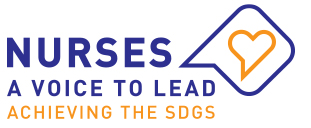Hepatitis C Nurse led Clinic, New Zealand
Nurses in whatever area they work have the opportunity to challenge discrimination and increase diagnosis of HCV in this often hidden population.
Internationally, 200 million people suffer from Hepatitis C. This is a staggering number considering that there are 40 million people with HIV. The vast majority of sufferers are either past or current intravenous drug users, for whom access to treatment is difficult due to social stigma and marginalization which prevent them from seeking assistance and make them a high risk group. This is often at the heart as to why intravenous drug users do not consider treatment for Hepatitis C.
In New Zealand, the number of people with Hepatitis C is estimated at 50’000 and is predicted to increase by 50 percent over the next 10 years. What makes these figures of greater concern is that, because Hepatitis C can be symptomless for many years, only about a quarter of those infected are aware they are carrying the virus, with only 5 percent accessing treatment. The estimated cost to New Zealand by 2020 will be $400 million annually if those infected do not receive treatment.[i]
Jenny Bourke is a Clinical Nurse Specialist and Nurse Manager at the Hepatitis Community Clinic in Christchurch, a city of approximately 375,000 people.[ii] Together with two other nurses, a social worker and a general practitioner (GP), they form a multidisciplinary team that works to reduce the barriers to accessing care and increase the accessibility for testing, diagnosing and treating the condition.
Jenny says that one of the greatest accomplishments of the clinic is the trust and respect gained, not only with clients, but from other agencies (Alcohol and Drug Services, Needle Exchange Programmes, GPs and secondary care physicians). Through building collaborative partnerships with other health professionals and services they have developed an integrative approach and improved healthcare access to Hepatitis C treatment for people who inject drugs.
Thanks to nurses’ key role in the ongoing care of those with Hepatitis C, from raising awareness to testing for new infections, liaising with others, providing education and supporting IV drug users, the clinic is able to offer clients a non-judgemental environment with flexible appointment times, expert phlebotomy skills, nurse-led outreach clinics and continuity of care.
Over the last three years the clinic has grown exponentially. The service currently manages 465 clients, and enrols approximately 15-25 new clients a month. The clinic has been successful and has a 98% attendance rate.
References
[i] Andrews, K. (2011). “The little community clinic that could.” Retrieved 11 November, 2016, from https://www.drugfoundation.org.nz/book/export/html/2318
[ii] Christchurch City Council (2016). “Christchurch City Council: Population.” Retrieved 11 November, 2016, from https://www.ccc.govt.nz/culture-and-community/statistics-and-facts/facts-stats-and-figures/population





